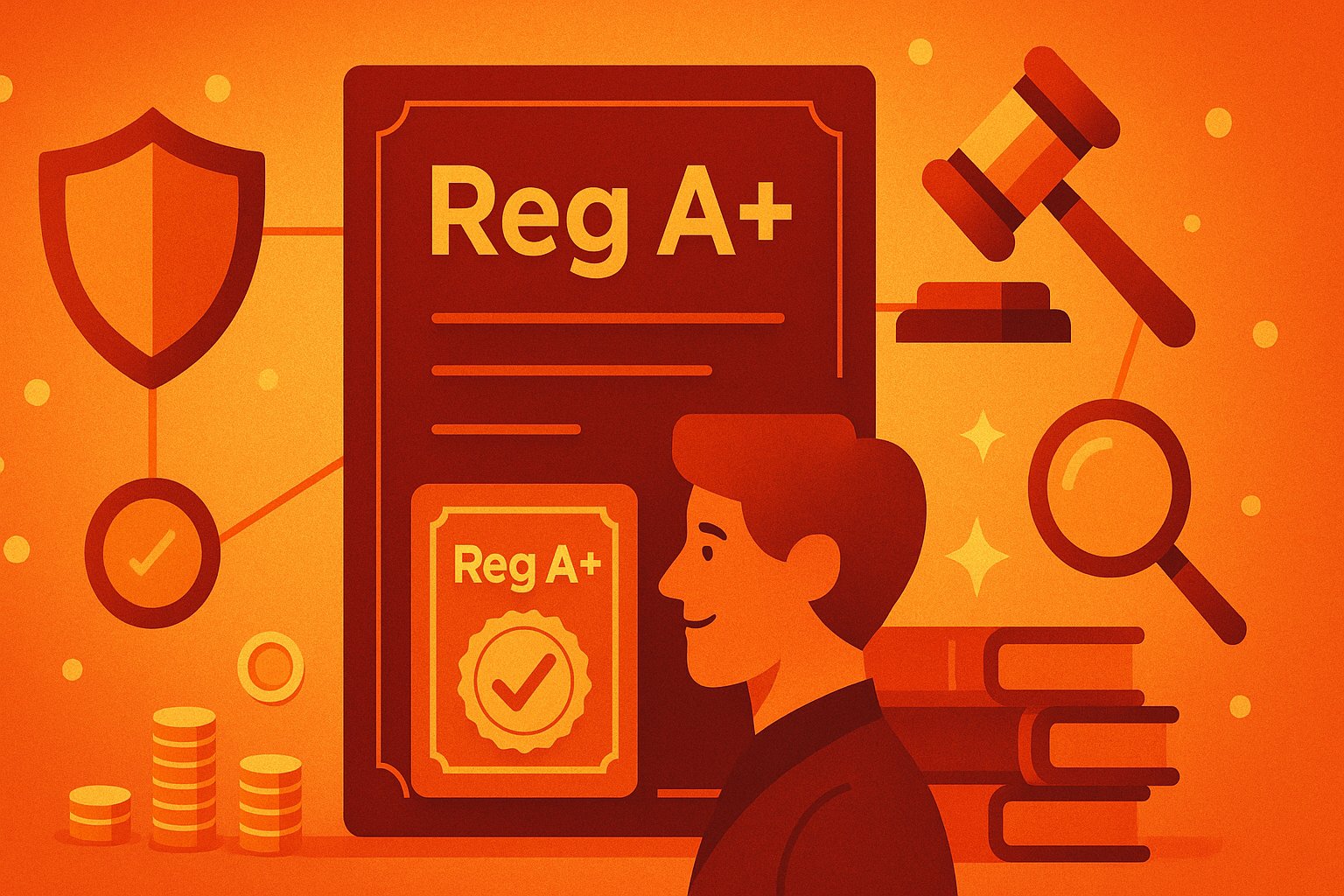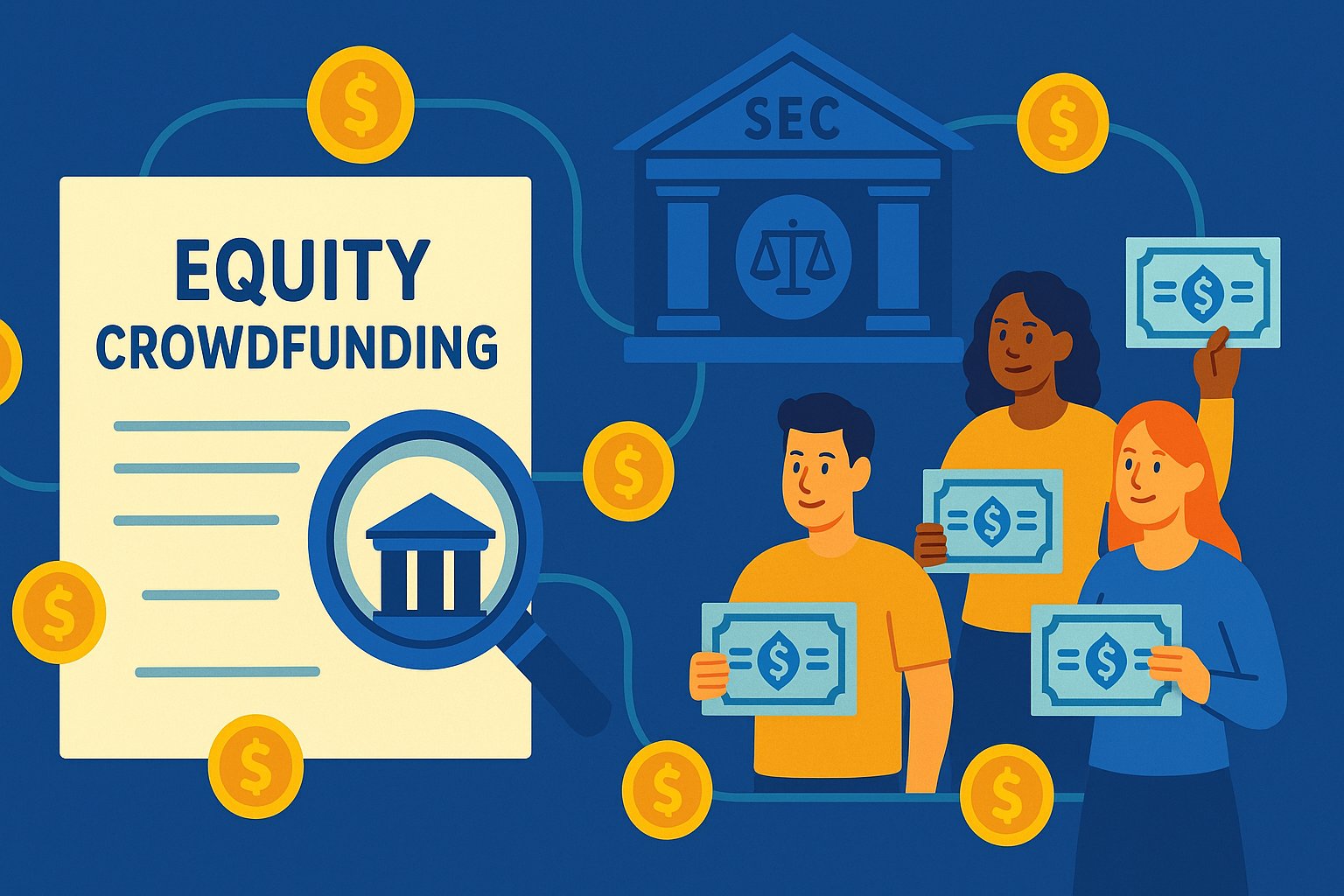Navigating the Legal Launchpad of Crowdfunding
Crowdfunding has emerged as a revolutionary way for entrepreneurs, creators, and community organizers to raise capital by tapping into a broad audience of supporters online. From launching innovative tech gadgets to supporting independent artists and funding community-driven causes, crowdfunding platforms such as Kickstarter, Indiegogo, and GoFundMe have democratized access to capital and offered backers a chance to participate in projects they believe in. However, this explosion of activity in the crowdfunding space has also drawn the attention of regulators worldwide, eager to ensure that participants—both campaign creators and investors—are protected from fraud, misrepresentation, and undue risk. For beginners stepping into the world of crowdfunding, understanding the legal framework that governs these platforms is crucial. Whether you are a visionary artist looking to fund your next masterpiece or an investor eager to support promising startups, knowing the rules of the game will help you navigate the landscape confidently, avoid costly pitfalls, and ensure compliance with relevant laws. Crowdfunding laws span a range of jurisdictions and often differ depending on the nature of the campaign, the type of funds being raised, and the financial instruments involved. In the United States, the JOBS Act of 2012 paved the way for equity crowdfunding by amending securities laws, while in the European Union, regulatory bodies have implemented comprehensive prospectus and anti-fraud rules for crowdfunding portals. Each framework reflects a balance between fostering innovation and safeguarding public interest. For campaign creators, legal obligations may include disclosure requirements, investor limits, and reporting obligations; for crowdfunding platforms, regulatory demands can involve registration, record-keeping, and risk-mitigation measures. This article offers beginners a clear, approachable guide to the laws shaping the crowdfunding ecosystem. We will explore major regulatory regimes in the U.S. and internationally, examine the responsibilities that fall on campaign creators and platform operators, discuss enforcement mechanisms and potential penalties, and look ahead to evolving legal trends. By the end of this comprehensive overview, you will possess the foundational knowledge needed to launch or support crowdfunding campaigns with greater assurance and awareness of the rules governing this dynamic space.
Understanding the Legal Landscape of Crowdfunding
At its core, crowdfunding involves soliciting small contributions from a large group of individuals—typically via an online platform—in order to finance a project, cause, or business venture. While this model opens doors to those who might not meet traditional financing criteria, it also raises concerns around investor protection, fraud prevention, and market integrity. Across jurisdictions, regulators strive to strike an equilibrium: encouraging innovation and inclusion without compromising financial stability or public trust.
Key legal considerations for campaign creators include whether the funds raised constitute donations, pre-sales, debt, or equity. Donations and reward-based campaigns—common on platforms like GoFundMe and Kickstarter—are subject to consumer protection and contract laws, but generally do not fall under securities regulation. In contrast, debt-based crowdfunding (peer-to-peer lending) and equity crowdfunding (offering shares or ownership stakes) typically trigger securities laws, requiring compliance with specific registration or exemption requirements. As the industry evolves, many jurisdictions have rolled out tailored frameworks that prescribe caps on fundraising amounts, investor contribution limits, and mandatory disclosures to ensure transparency and reduce the risk of fraud.
Key U.S. Crowdfunding Regulations
In the United States, the Jumpstart Our Business Startups (JOBS) Act of 2012 marked a watershed moment for crowdfunding. Title III of the JOBS Act introduced Regulation Crowdfunding (Reg CF), allowing startups and small businesses to raise up to $5 million in a 12-month period from both accredited and non-accredited investors. To qualify, issuers must file Form C with the U.S. Securities and Exchange Commission (SEC), which includes detailed disclosures about the company’s financial condition, business plan, officer and director background, target offering amounts, and potential risks.
Under Reg CF, individual investors face contribution limits based on their annual income or net worth, ensuring that novice investors do not overextend themselves. Platforms facilitating Reg CF offerings must register with the SEC as funding portals or broker-dealers and become members of the Financial Industry Regulatory Authority (FINRA). These platforms are obligated to verify the identity of issuers and investors, provide educational materials, and enforce anti-fraud measures. Additionally, Regulation A+ (Reg A Tier 2) allows companies to raise up to $75 million with less burdensome reporting requirements than a full public offering, making it an attractive alternative for those seeking larger sums while still enjoying streamlined compliance.
Types of Securities Crowdfunding Under U.S. Law
Securities-based crowdfunding in the United States primarily takes three legal forms. First, Regulation Crowdfunding (Reg CF) permits early-stage startups to raise modest sums from a broad pool of investors, democratizing access to investing but imposing strict issuer disclosures, investor limits, and platform registration requirements. Second, Regulation A+ (Reg A Tier 2) expands the ceiling on capital raises to $75 million, enabling more mature entities to tap into the public while benefiting from simplified blue-sky compliance in many states. Third, Rule 506(c) of Regulation D allows companies to raise unlimited amounts from accredited investors—wealthy individuals and institutions—provided all investors are accredited and the issuer takes reasonable steps to verify their status.
Each pathway carries unique advantages and obligations. Reg CF is ideal for community-backed or mission-driven ventures, offering access to non-accredited investors and building engagement. Reg A+ appeals to companies poised for growth that require substantial funding but are not ready for an initial public offering. Rule 506(c) remains the go-to for traditional angel and venture capital investments, prioritizing investor sophistication over broad participation. Campaign creators must carefully evaluate these routes, weighing funding goals, desired investor profiles, and tolerance for compliance costs.
Global Approaches to Crowdfunding Regulation
Beyond U.S. borders, regulators across the globe have implemented crowdfunding frameworks tailored to their financial markets and consumer protection standards. In the European Union, the 2020 EU Crowdfunding Regulation harmonized equity and debt crowdfunding rules across Member States, setting a €5 million fundraising cap per 12-month period and requiring platforms to obtain authorization from a designated national competent authority. The regulation emphasizes uniform investor disclosures, risk warnings, and complaint handling procedures, thus fostering cross-border crowdfunding activities within the single market.
In the United Kingdom, the Financial Conduct Authority (FCA) regulates crowdfunding platforms under a bespoke “restricted mass market” regime for peer-to-peer lending and oversees equity platforms under full FCA authorization. Canada’s provincial securities regulators permit equity crowdfunding raises up to CA$1.5 million per year, subject to strict issuer and platform requirements. Australia, similarly, allows small scale offerings up to AUD$5 million, with mandatory disclosure documents and platform licensing. Each jurisdiction seeks to balance growth, innovation, and risk mitigation, often collaborating through international bodies such as the International Organization of Securities Commissions (IOSCO) to share best practices and harmonize regulations.
Legal Responsibilities of Campaign Creators
Campaign creators bear significant legal obligations, which extend well beyond simply outlining a project on a crowdfunding platform. For securities-based campaigns, full transparency is paramount: issuers must provide accurate, up-to-date financial information, articulate clear use-of-proceeds statements, and disclose any conflicts of interest or material risks. Failure to comply can trigger enforcement actions by securities regulators, including fines, disgorgement of funds, or even criminal charges in cases of intentional fraud.
Even non-securities campaigns carry legal responsibilities. Consumer protection laws require that reward-based projects deliver promised perks or provide refunds when obligations are unmet. Many jurisdictions treat misleading or deceptive campaign descriptions as unfair trade practices subject to civil penalties, and terms of service on platforms often stipulate contractual remedies for backer grievances. Campaign creators should also consider intellectual property rights, ensuring that any images, music, or proprietary technology involved in the project do not infringe on third-party rights, which could lead to costly litigation. Engaging legal counsel early, reviewing platform terms, and instituting robust record-keeping practices can help creators navigate these obligations and build trust with supporters.
Legal Obligations for Crowdfunding Platforms
Crowdfunding platforms themselves are subject to a host of legal and regulatory requirements designed to uphold market integrity and protect end users. In the U.S., portals operating under Reg CF must register with the SEC as funding portals or broker-dealers, adhere to FINRA rules, and implement stringent Know-Your-Customer (KYC) and Anti-Money-Laundering (AML) procedures. Platforms are prohibited from providing investment advice or soliciting purchases, and they must provide educational resources that help users understand the risks associated with crowdfunding investments.
Internationally, platforms often require licensing or authorization from local financial authorities, involving periodic reporting on platform performance, risk management policies, and complaint handling. Many regulators mandate platforms to maintain segregated escrow accounts for campaign funds to ensure that capital is only released to issuers upon successful completion of funding milestones. Robust cybersecurity measures, data privacy safeguards, and transparent fee structures further underpin regulatory frameworks. For platform operators, complying with these legal mandates not only reduces the risk of enforcement actions but also enhances credibility among investors and creators.
Enforcement and Penalties
Despite the regulatory guardrails, crowdfunding remains susceptible to bad actors seeking to exploit loopholes or mislead investors. Regulators such as the U.S. SEC, the UK FCA, and EU national authorities actively monitor crowdfunding activities, investigating allegations of fraud, misrepresentation, or unauthorized offerings. Enforcement actions can result in cease-and-desist orders, monetary penalties, injunctions, and even criminal prosecutions for egregious misconduct. Past cases have involved campaign creators who diverted funds for personal use, manipulated financial statements, or misappropriated intellectual property, leading to investor losses and reputational damage for associated platforms.
Maintaining vigilance is critical. Investors should conduct due diligence on issuers, reviewing financial disclosures and consulting independent legal or financial advisors when necessary. Platforms can leverage technology to detect red flags—unusual funding patterns, last-minute promise changes, or feedback from backers—and coordinate with regulators to report suspicious activities. Clear dispute resolution mechanisms and readily accessible investor protection schemes, such as compensation funds, further bolster enforcement frameworks and help preserve confidence in the crowdfunding ecosystem.
Future Trends in Crowdfunding Law
As technology and finance evolve, crowdfunding regulation is poised for further transformation. The rise of cryptocurrency-based fundraising—including initial coin offerings (ICOs) and token sales—has prompted regulators worldwide to reassess existing securities laws. In the United States, the SEC has indicated that many tokens may qualify as securities, subject to registration or exemption requirements. Similarly, the EU’s forthcoming Markets in Crypto-Assets (MiCA) regulation will establish uniform rules for crypto-asset issuers and platforms, potentially intersecting with traditional crowdfunding frameworks.
Decentralized finance (DeFi) protocols and blockchain-based automated funding mechanisms present additional legal complexities. Questions around jurisdiction, platform liability, and investor recourse in smart-contract-driven campaigns remain unsettled. Meanwhile, lawmakers are exploring how crowdfunding can support environmental, social, and governance (ESG) initiatives, incentivizing green projects through tailored tax incentives or grant matching schemes. For campaign creators and platforms, staying abreast of these legal developments—by engaging with regulatory consultations, participating in industry working groups, and monitoring guidance from authorities—will be essential to harness emerging opportunities while ensuring compliance.
Navigating Crowdfunding Compliance
Given the multifaceted nature of crowdfunding laws, a proactive approach to compliance is indispensable. Campaign creators should begin by determining whether their fundraising effort falls under securities regulation or consumer protection laws. Engaging qualified legal counsel to draft or review disclosure documents, privacy policies, and terms of service is often a prudent investment that can prevent costly missteps. Maintaining detailed records of communications, backer agreements, and fund disbursements also enhances transparency and facilitates regulatory reporting.
Platforms, meanwhile, benefit from implementing robust compliance management systems that integrate KYC/AML checks, real-time risk monitoring, and automated reporting tools. Providing educational resources—such as plain-language guides, webinars, and risk assessment calculators—empowers users to make informed decisions and reduces the likelihood of disputes. Collaborative relationships with regulators, including participating in sandbox programs or pilot initiatives, can further streamline authorization processes and signal a commitment to best practices. Ultimately, embedding compliance into the organizational culture—not as a hurdle but as a competitive advantage—can drive sustainable growth and foster trust among creators and investors alike.
Final Thoughts: Charting a Compliant Course
Crowdfunding has transformed the way ideas are funded and communities are mobilized, opening up new avenues for innovation and social impact. Yet, with great opportunity comes significant responsibility. For beginners embarking on crowdfunding ventures—whether as campaign creators, platform operators, or investors—understanding the legal landscape is not merely a bureaucratic exercise but a cornerstone of success. By familiarizing yourself with key regulations, embracing transparency, and adopting rigorous compliance practices, you can navigate this dynamic environment with confidence and integrity. As laws continue to evolve in response to technological advances and market demands, staying informed and adaptable will ensure that your crowdfunding journey remains on solid legal footing, poised to turn vision into reality.




